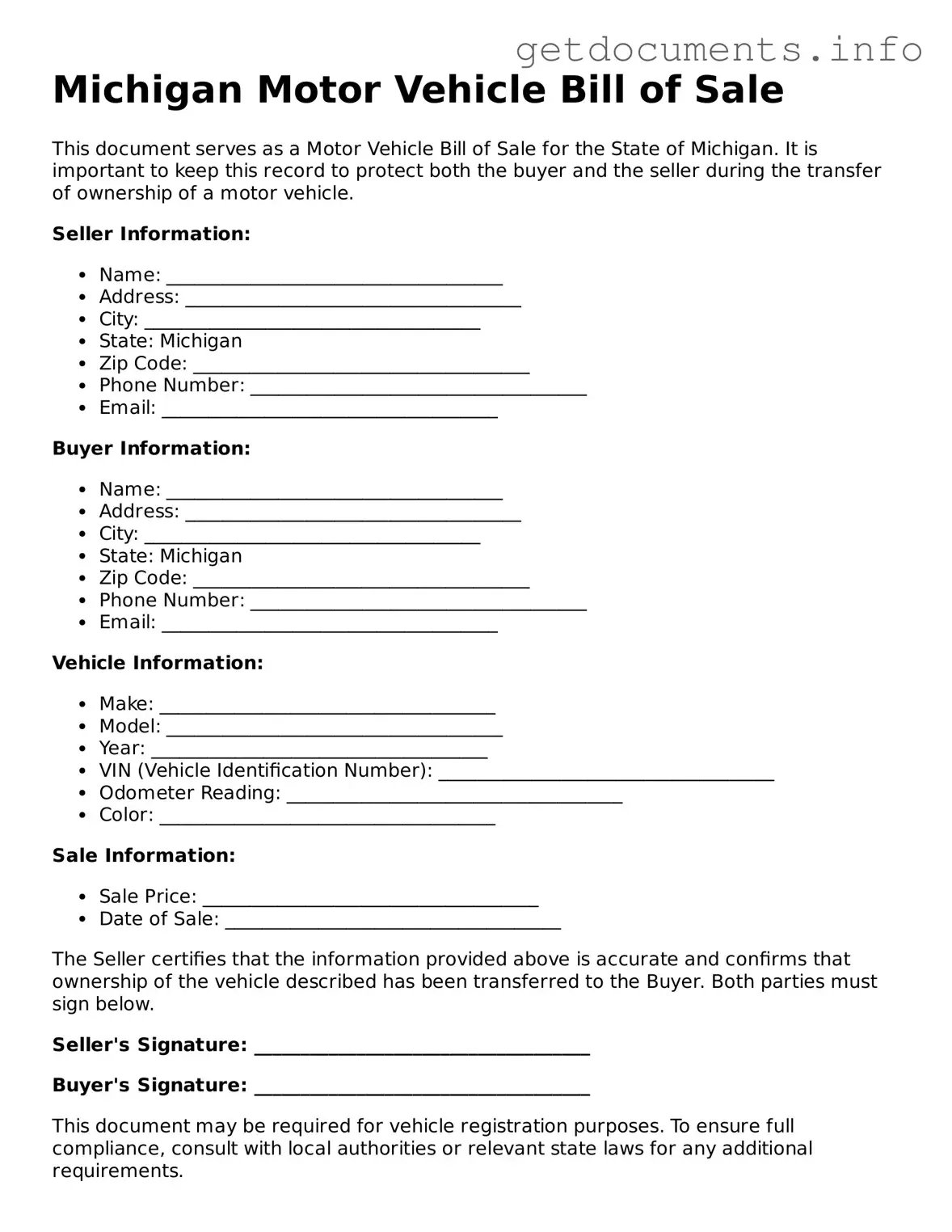Free Motor Vehicle Bill of Sale Template for Michigan
The Michigan Motor Vehicle Bill of Sale form is a legal document that records the transfer of ownership of a vehicle from one party to another. This form provides essential details about the vehicle and the transaction, ensuring both the seller and buyer are protected. To facilitate a smooth transfer, it is important to fill out this form accurately.
Start the process by clicking the button below to fill out the form.
Access Motor Vehicle Bill of Sale Editor

Free Motor Vehicle Bill of Sale Template for Michigan
Access Motor Vehicle Bill of Sale Editor
Got places to be? Complete the form fast
Fill out Motor Vehicle Bill of Sale online and avoid printing or scanning.
Access Motor Vehicle Bill of Sale Editor
or
⇩ PDF File
